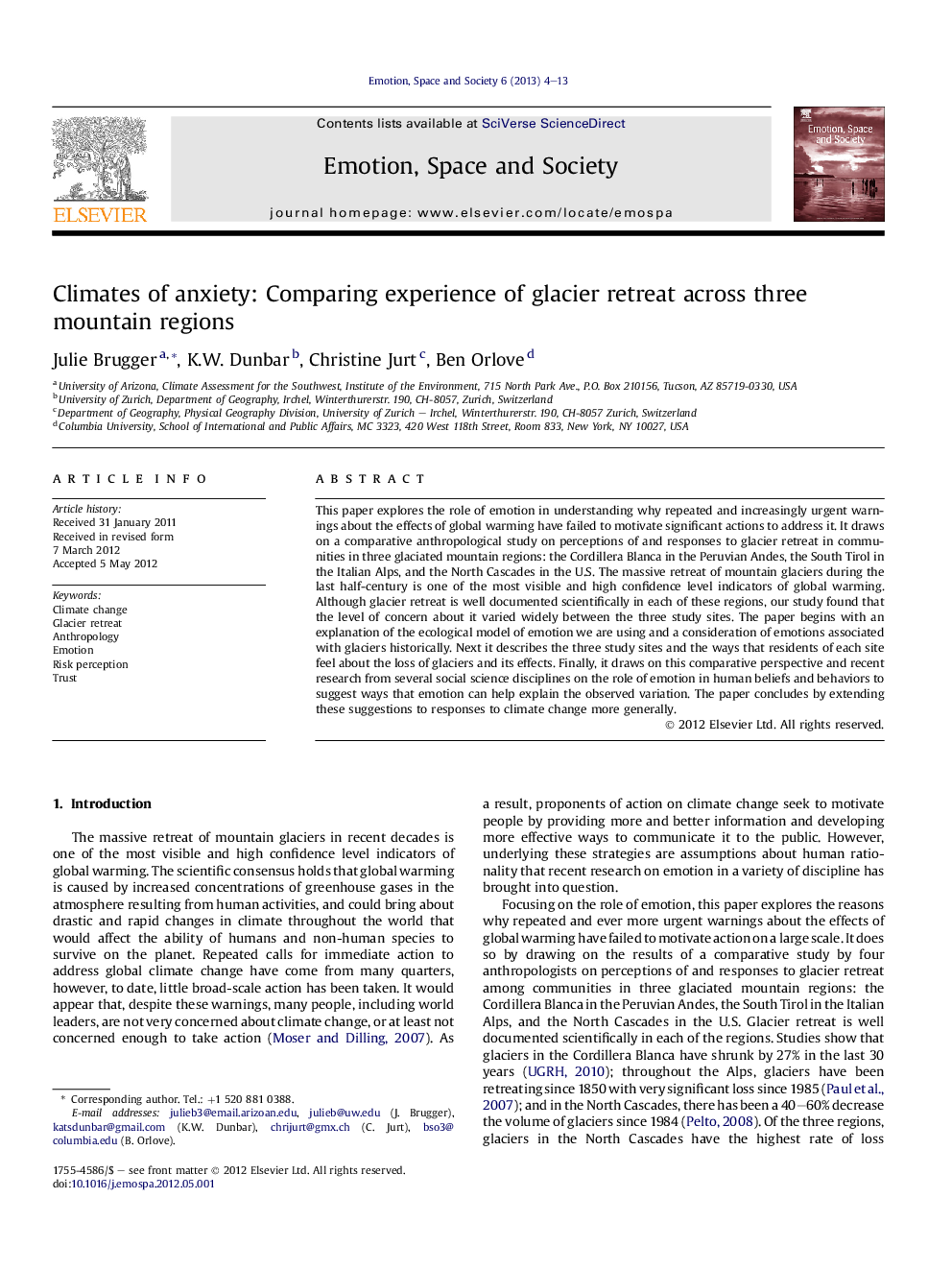| Article ID | Journal | Published Year | Pages | File Type |
|---|---|---|---|---|
| 946808 | Emotion, Space and Society | 2013 | 10 Pages |
This paper explores the role of emotion in understanding why repeated and increasingly urgent warnings about the effects of global warming have failed to motivate significant actions to address it. It draws on a comparative anthropological study on perceptions of and responses to glacier retreat in communities in three glaciated mountain regions: the Cordillera Blanca in the Peruvian Andes, the South Tirol in the Italian Alps, and the North Cascades in the U.S. The massive retreat of mountain glaciers during the last half-century is one of the most visible and high confidence level indicators of global warming. Although glacier retreat is well documented scientifically in each of these regions, our study found that the level of concern about it varied widely between the three study sites. The paper begins with an explanation of the ecological model of emotion we are using and a consideration of emotions associated with glaciers historically. Next it describes the three study sites and the ways that residents of each site feel about the loss of glaciers and its effects. Finally, it draws on this comparative perspective and recent research from several social science disciplines on the role of emotion in human beliefs and behaviors to suggest ways that emotion can help explain the observed variation. The paper concludes by extending these suggestions to responses to climate change more generally.
